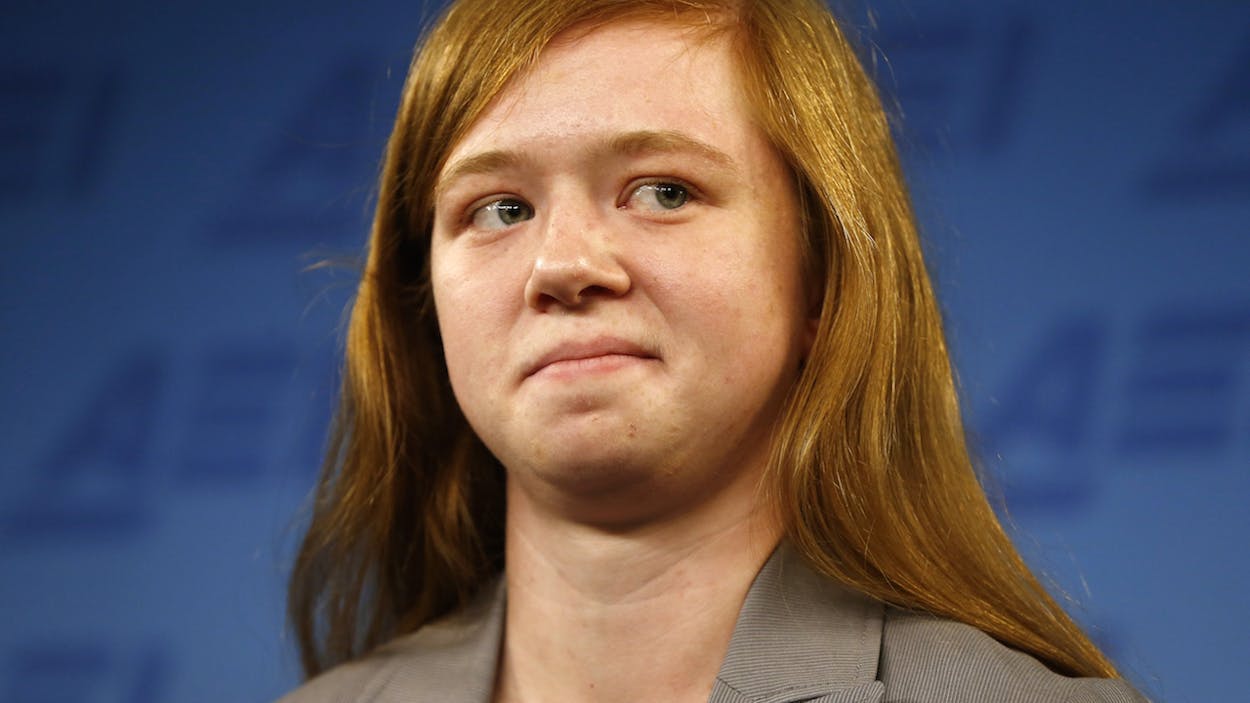The U.S. Supreme Court just returned from summer vacation Monday, but there is already a lot of buzz surrounding this term. Before next summer, the justices could offer clarity on two major cases that stand to shake up laws that have been in place for decades. Both of those cases originate from Texas, and both have been simmering for years.
Fisher v. University of Texas
Fisher v. University of Texas, the case that could change or even abolish affirmative action, originated from a 2008 lawsuit brought by former LSU student Abigail Fisher. Fisher, who graduated in the top 12 percent of her high school class, just shy of the cutoff UT and other state universities had in place for automatic admission at that time. Students who fail to crack the top 10 percent of their graduating classes can still be admitted into UT through a formula that considers talents, leadership qualities, family circumstances, and race. And it’s that last bit that led Fisher to sue UT for racial discrimination.
In 2003, the Supreme Court ruled in the case Grutter v. Bollinger that race had a legitimate, if limited, role in public university admissions. Fisher’s case, which challenged that ruling yet again, has been bouncing between appellate courts for the past seven years. The Supreme Court first heard Fisher’s case in 2012, after a lower court upheld the university’s policies. In that hearing, SCOTUS vacated the circuit court’s opinion, finding that it hadn’t applied the standards required by Grutter v. Bollinger in Fisher’s case. That kicked everything back down to the lower court, but had no broader implications for affirmative action laws in the U.S.—by ruling only that the 5th Circuit had failed to apply Grutter properly, it didn’t challenge the basis for affirmative action.
Last year, the 5th Circuit—once again—ruled in favor of UT, and Fisher—once again—appealed to the Supreme Court. This time around, it’s distinctly possible that the court—which has four new justices compared to when Grutter v. Bollinger was heard—could make a ruling that would essentially end affirmative action in university admissions.
Affirmative action isn’t the only long-established principle at stake in the current Supreme Court term because of a lawsuit coming out of Texas. The inevitable journey of HB2, the omnibus abortion bill that was passed in the second of two special legislative sessions in 2013, to the high court, has finally landed.
Whole Woman’s Health v. Cole
Although the court has yet to formally decide on whether it’ll hear the case, all signs point to it making an appearance this term. The court issued a stay on the 5th Circuit’s ruling in Whole Woman’s Health v. Cole in anticipation of its own decision.
At stake in this case is the state’s ability to pass strict abortion regulations that stemmed out of HB2, the omnibus bill that was signed into law in July 2013. The justices are expected to zero in on hospital admitting privileges and the requirement that facilities meet the standards of an ambulatory surgical center, but if the court finds for the plaintiff, any or all of HB2’s restrictions could be overturned—including a twenty-week abortion ban. But if the court finds for Texas (represented by Kirk Cole, the interim commissioner of the Department of State Health Services), then not only do those restrictions immediately and permanently go into effect in the state, they can also be passed in other states around the country.
That’s a big deal. The Supreme Court rarely hears abortion cases—the last one was Gonzales v. Carhart in 2007, which upheld the Partial Birth Abortion Ban Act of 2003—and the restrictions imposed by HB2 are broader in nature than even that case. More to the point, laws that restrict access to abortion aren’t likely to stop at what’s contained in HB2, if this law gets through the Supreme Court. If HB2 is found to be unconstitutional, restrictions on abortion in the U.S. are likely to go back to the drawing board. If HB2 passes muster, the next wave of laws are likely to be even broader and more sweeping.
For his part, embattled Texas Attorney General Ken Paxton has asked the high court not to hear the case at all. That would be a significant outcome for Texas—the law would go into effect—but it’d stop short of validating it at a national level. It’s unlikely, though possible, that the Supreme Court passes on HB2—if that were the plan, they’d probably have let the 5th Circuit’s ruling stand earlier this year without issuing a stay—but Paxton, who represents Texas, has reason to think in terms of the state’s interests.
In any case, the future of two major facets of American life since the seventies—affirmative action and abortion access—are in question right now, and it’ll be up to the Supreme Court to see how they’ll play out.








